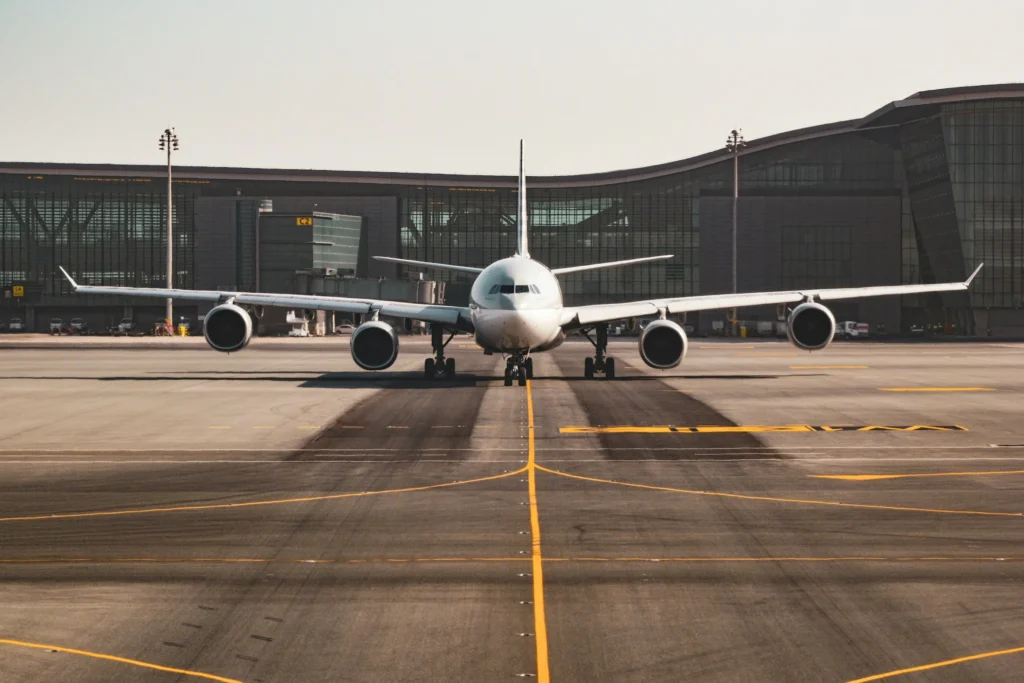Saudia Arabia- Over 100 companies, including 52 from Saudi Arabia, have expressed interest in the ambitious Abha International Airport project. This initiative, set in Saudi Arabia’s Asir Province, aims to develop and operate a new terminal building and related facilities through a Public-Private Partnership (PPP) model. Selected partners will enter into long-term agreements spanning 30 years, covering responsibilities from constructing a state-of-the-art terminal to managing complex airport operations.
The master plan for the airport was revealed by Crown Prince Mohammed bin Salman in October 2023. Following this, Foster & Partners was awarded the design consultancy contract. The plan is designed to reflect the rich heritage of the Aseer Region, positioning the airport as a prominent landmark within Saudi Arabia. Strategically situated, Abha International Airport is set to serve as a crucial link connecting domestic and international air travel. It is projected to accommodate up to 8 million passengers by 2030. The construction will unfold in two to three phases, with the initial phase featuring a terminal building spanning 69,400 square meters, poised for expansion to 73,200 square meters in subsequent phases. The expansion endeavors include provisions for 11 jetways, a parking facility for 3,000 vehicles, a mosque with a capacity for 1,000 worshippers, and essential infrastructure enhancements such as a rapid exit taxiway, apron facilities, access roads, and support amenities including an expanded electrical substation and a new sewage treatment plant.
Beyond the terminal, the project’s scope extends to include a reception center, commercial complex, exhibitions, markets, cargo facilities, meteorology and environmental protection buildings, and structures dedicated to airport administration, air navigation, and maintenance. The involvement of key governmental entities such as the Ministry of Transport and Logistics Services, the General Authority of Civil Aviation, and the Assir Development Authority underscores the strategic importance of this initiative.
The economic impact of the Abha International Airport project on the local economy of the Aseer Region is significant. Job creation across various sectors, from construction to airport operations, will provide substantial employment opportunities. The improved air connectivity is expected to attract more tourists and business travelers, contributing to the local economy through spending on accommodation, dining, and leisure activities. Enhanced cargo facilities will facilitate trade and exports, boosting economic activity. The presence of the airport encourages investment and business development, serving as a gateway for foreign investors and companies. The demand for real estate around the airport will increase, benefiting hotels, restaurants, and retail establishments. Infrastructure improvements, such as roads and utilities, will contribute to overall economic development.
The airport project also offers opportunities for skill development and capacity building, enhancing employability in the long term. A well-functioning airport attracts private investment, leading to economic diversification and growth. The project exemplifies the commitment to fostering public-private partnerships to drive comprehensive socio-economic growth in the region.
By enhancing the transportation infrastructure in the Aseer Region, this initiative aims to bolster passenger traffic, catalyze regional development, elevate travel experiences, and modernize logistical operations, thus propelling the Kingdom’s overarching development agenda forward. The Abha International Airport is poised to have a substantial impact on the region’s economy, driving job creation, tourism, business development, and investment, thereby fostering a vibrant and sustainable future for the Aseer Region.





